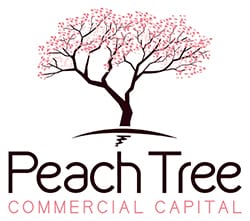If you’re new to Commercial Real Estate (CRE), you should know that financing for commercial property is a lot different from a home mortgage. It comes with a higher price tag, often a shorter repayment term, and a vocabulary all its own. But if you’re looking for your next (or first) commercial property, you’ve come to the right place. We’ll cover some of the basics of CRE loans, the most common types of CRE loans, and answer a few FAQs along the way.
CRE loans help businesses buy or renovate commercial real estate. CRE can be warehouses, offices, apartments, hotels, retail malls, mixed-use, and special-purpose properties. Businesses use them to house operations or generate rental income. Certain types of loans only apply to owner-occupied property, meaning that the business purchasing the property will use at least 51% of that property for their own business operations, not as leasable space.
Terms, rates and the amount of time from application to close differ for CRE loans, depending on the property you want, the type of business you own, and who your lender is. Choosing a lender can be a bit intimidating. Having a good broker on your side makes choosing and applying for a CRE loan much easier than doing it on your own. You may go through the loan process only a handful of times over the lifetime of your business, while a broker does it multiple times a day. The combination of experience and long-term lender relationships is worth seeking out a reliable broker.
Here are three of the most common types of CRE loans, where they come from, and what you can expect when applying for one.
Traditional CRE Mortgages
When we think of “traditional” lenders, we usually mean banks, credit unions, and brick-and-mortar financial institutions. These are different from private or online lenders, even though many banks offer online services. Most traditional lenders have to follow stringent rules and regulations. So, you’ll need to submit several documents with your application, and the process will likely take several months to go through underwriting.
The exact requirements vary by bank but expect to submit at least three years of financial statements, tax returns, and bank statements. You’ll also need a credit score of 660 or higher and a 20% down payment. Your loan amount may or may not cover appraisals and legal fees, so be sure you check the fine print.
Most traditional CRE mortgages:
- 10-20 year term
- Average 80% LTV
- 5%-7% interest rate
- $1 million average loan amount
SBA 504 Loans
The most popular Small Business Association loans are the 7(a) and 504 loans. Both can be used to get money for commercial real estate but they also offer equipment, construction, and refinancing loans. The 7(a) has the added benefit of working capital. Another big difference is that the 504 loan is better for commercial real estate. You won’t need outside collateral, and the interest rates are fixed, unlike with the 7(a) loan.
You’ll need to have your broker connect you with a local nonprofit Certified Development Company since the SBA doesn’t service the loans directly. The 504 is built out of three main parts: a 10% down payment, 50% from a bank or credit union, and 40% from the CDC. You’ll also need to be an eligible business that creates at least one job for every $65k borrowed.
SBA 504 loans:
- 10, 20, or 25-year terms
- Average 90% LTV
- 2.23%-2.39% fixed interest rate
- $5.5 million maximum loan amount
Bridge Loans
Bridge loans essentially help a business act fast and “bridge” a financial gap until another source comes through. The other financing source could be a traditional commercial mortgage, income from rentals, or reselling the property. While you might wait several months to secure a traditional commercial mortgage, bridge lenders can approve your loan in a few days. But be aware that interest rates on bridge loans can be higher than on other types of CRE loans.
These loans typically come from private lenders and don’t have penalties for early repayment. Bridge loans are great if you want to buy new real estate while you’re waiting for an old property to sell. To apply, you’ll need at least two years in business, collateral, a debt-service coverage ratio of at least 1.25, and a credit score of 650 or higher. Don’t forget to get personal financial documents in order as well as your business information.
Typical Bridge loans:
- 36-month terms
- Average 80% LTV
- 4.20%-13.30% variable interest rate
- $1 million or more loan amount
CRE Loan FAQ
- What is a debt-service coverage ratio (DSCR)?
This is a number lenders use to determine how well you can handle a new loan. It’s the business’s net annual income divided by its current debt. The current debt includes payments on the potential new loan. - What is an LTV?
LTV stands for Loan-to-value. It’s the percentage of the asset’s value that the lender will fund. So, if you’re getting an 80% LTV on an asset worth $100,000, it means the loan amount will be $80,000. You’ll have to come up with the remaining $20,000 through other means. Most loans do not have a 100% LTV. - Are multi-family homes commercial or residential real estate?
The answer to this question usually depends on how many units the building has. Fewer than four units are typically considered residential property. Four or more units would be commercial real estate. - What if I’m turned down for a CRE loan?
If you apply for a CRE loan and get turned down don’t give up hope. Loan applications can get turned down for a variety of reasons from incomplete documentation to personal credit scores. But loans like the SBA loans require that you try other lenders first. So, even if you’re turned down the first time, you can always succeed with your broker’s help. 5 - Can I use a CRE loan to renovate my commercial property?
Yes. Many CRE loans let you use the money to improve a property you already own. If you’re making sustainability upgrades (solar panels, gray water systems, etc.), you may qualify for federal aid and tax incentive programs.
Wrap Up
As with most types of financing, there can be a lot to learn about CRE loans. Hopefully, you’ve found a few helpful facts in this article to get you started. It’s a good idea to keep a list of questions to ask when you speak with your broker. Not all lenders are the same, and rates and fees vary widely. But, with the abundance of options out there, your broker will be able to match you with the right product. That saves you more time to spend on running your business.

